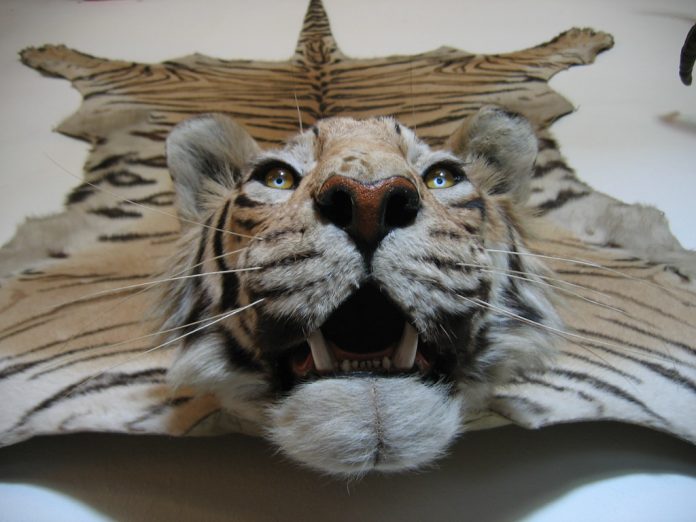As part of its ongoing campaign against trophy and canned hunting, international wildlife charity Born Free has revealed that, since the turn of the millennium, the UK has been the listed destination to receive around 3,500 trophy items.
In the decade from 2008 to 2017 alone, a total of almost 290,000 trophy items derived from nearly 300 different animal species listed on the Appendices of the UN Convention on International Trade in Endangered Species of Wild Fauna and Flora (CITES), were exported or re-exported from 119 countries to 165 importing countries. During this period, the UK was the destination for 2,242 trophy items including:
560 African elephants, 301 hippopotamuses, 265 American black bears, 222 baboons, 159 zebra, 98 Nile crocodiles, 87 leopards, 80 African lions – 48 being declared as ‘captive bred’ – likely derived from canned hunting, where the animals are bred, and killed in a confined area from which they cannot escape.
These appalling figures are limited to CITES-listed species only as they are regulated by a system of permits, and reported annually by governments to a central database which is made available to the public.
The finding is part of Born Free’s report which highlights the top ten worst offending countries in the world when it comes to exporting or re-exporting hunting trophies derived from internationally protected species.
South Africa, Canada, Mozambique, Namibia, Zimbabwe, Zambia, Botswana, Tanzania, Mexico and Argentina all ranked in the top ten worst offending countries for exports, while the United States was the declared destination for approximately 42% of all exports. European Union member states accounted for a further 27% followed by Singapore, Mexico and Russia.
“Trophy hunting is a cruel and damaging relic of a colonial era that causes immense animal suffering and disrupts wildlife social groups and populations, while doing virtually nothing to help wildlife conservation or local communities who live alongside wild animals,” commented Dr Mark Jones, Head of Policy at Born Free, who led the research.
“These statistics go to show how extensive trophy hunting continues to be, in terms of both the range of species and the sheer numbers of animals involved. It is shameful that countries continue to permit trophy hunting and allow the heads, skins, or other body parts of threatened animals to be shipped overseas so hunters can display them on their walls or in their cabinets. The UK government can and should take action without delay to ban the importation of trophies from threatened species, so as to stop British hunters from travelling overseas to kill rare species, and to set an international precedent as part of a commitment to safeguard the conservation and welfare of the world’s diminishing wildlife. We must do everything we can to ensure this archaic activity is brought to an end,” added Dr. Jones.

